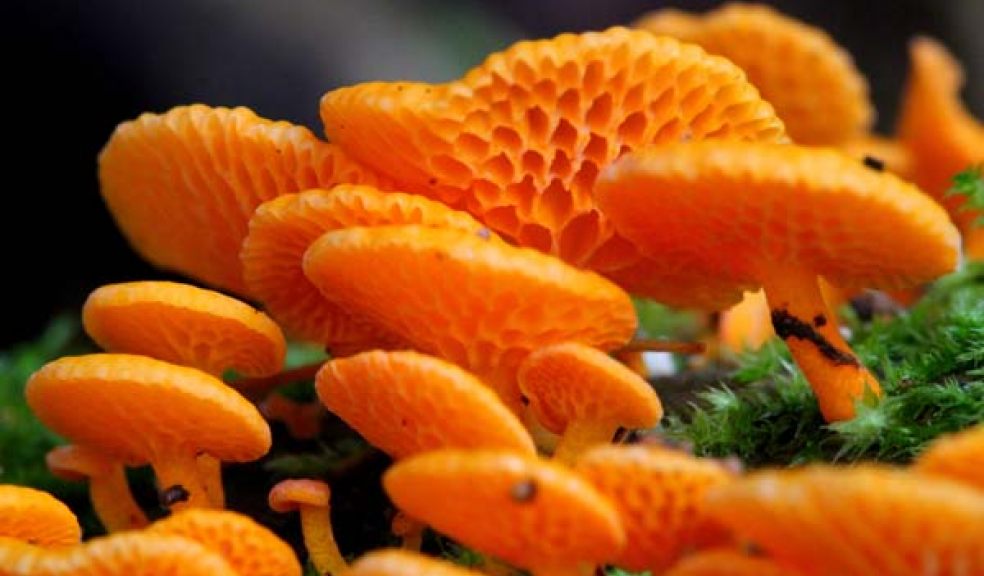
Charity launches public hunt for fancy fungi
A local conservation charity has launched a public search - for tiny orange ping-pong bats.
Naturalists in South Devon have found an unusual fungus – known as orange ping-pong bats – that has only ever been identified in the UK once before. And they are asking the public to help track its progress across the country.
The fungus – found in Africa - was discovered at Primley Park, in Paignton, a nature reserve run by the Whitley Wildlife Conservation Trust. Reserves Warden Dave Ellacott came across it when he was making repairs to fencing near the entrance:
“When I saw it I knew it was special, as I had not seen anything like that before. It has clusters of bright orange fans - the largest are the size of a penny. When I didn’t find it in any of my ID books or an online search I went to iSpot, where the fantastic community of experts turned up trumps.”
Dave was able to call on experts including Dr David Farley, of the Devon Fungus Group and British Mycological Society, Dr Martyn Ainsworth, the Senior Mycologist at the Royal Botanic Gardens Kew, and Eleanor Knott, Specialist Officer at the Devon Biodiversity Records Centre. The photographs were taken by Paignton Zoo intern Simon Hendry.
The fungus has the scientific name Favolaschia calocera but goes under a number of rather easier popular names, including the orange pore fungus, orange pore conch and, most colourful of all, orange ping-pong bats. It may have arrived on imported timber or timber waste products, such as bark, although it is impossible to know for sure. As it only grows on dead wood it isn’t considered a threat to native species.
Dr Ainsworth, from Kew Gardens, confirmed the identification officially after the iSpot online community flagged up its significance.
Dr Farley: “This is only the second time the fungus has been reported in the UK. An example was found in Cornwall last year and now we have this one.” Dr Farley, a retired researcher in biosciences at Exeter University, is the recorder for the Devon Fungus Group. “It’s hard to say if this new arrival will establish itself and become common in this country, but it has proved itself to be very adaptable elsewhere.”
The appearance of Favolaschia calocera in the UK represents an unusual opportunity to observe the spread of a fungus by involving the public. Most fungi are difficult to identify, but this species is unlike any other that occurs here. The bright orange fan shaped fruit-bodies growing on dead wood and the presence of rounded pores rather than elongated gills on the underside help to mark it out. The individual fruit-bodies are only 10 to 15mm wide, but grow in dense clusters that are quite conspicuous.
“We can expect this species to be seen elsewhere and its spread is of scientific interest, especially to see if it displaces any of our native wood-decay species. We need the help of the public to track it, so we would welcome reports of any sightings.”
Information can be sent to Dr David Farley at d.b.farley@exeter.ac.uk or to the Whitley Wildlife Conservation Trust at Trust.Secretary@wwct.org.uk.
The Whitley Wildlife Conservation Trust is the charity that runs Paignton Zoo, Living Coasts in Torquay and Newquay Zoo in Cornwall, as well as several nature reserves in Devon.
For information on the Devon Biodiversity Records Centre, go to: www.dbrc.org.uk. For information about iSpot go to: http://www.ispotnature.org/communities/uk-and-ireland.














